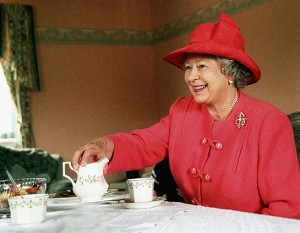Augmentative e diminutive in Portuguese Posted by carol on Nov 12, 2015 in Brazilian Profile, Grammar, Learning, Spelling, Vocabulary
Olá, galerinha. Tudo certinho? (Hey, you guys, everything all right?)
You may have noticed while trying to learn Portuguese or chatting with Brazilians that we really enjoy using the augmentative and the diminutive forms. It’s very common and we use it on a regular basis, so it’s important to learn how it works. The augmentative is used to indicate a larger size, to exaggerate, show intensity or place emphasis. On the other hand, the diminutive conveys a smaller size –or that something is insignificant, expresses affection, cuteness or as terms of endearment. Sometimes both can be used for the purpose of irony.
There are two ways to use the augmentative and the diminutive. In the first one, you simply add adjectives like minúsculo, pequeno, grande, enorme, imenso before the noun or word, as in the examples below:
- Esse vestido minúsculo não vai servir em mim. (This tiny dress won’t fit me)
- Que porções pequenas! Vou continuar com fome (Such small portions! I’m still goint to be hungry)
- Minha patroa mora em uma casa enorme perto do parque (My boss lives in a huge house near the park)
Another way to employ this structure is to modify the word by dropping the last vowel and including a suffix. In general, it goes: ão, ona (for the aumentative, in the masculine and feminine form respectively) and inho, inha (for the diminutive, in the masculine and feminine form respectively). Remember that the tilde “ ~ “ represents the nasal sound. Take a look at the following examples:
- Faz um tempão que eu não te vejo! (It’s been a long time that I haven’t seen you!)
- Tem uma filona para pagar as contas no banco (There’s a big line at the bank to pay the bills)
- O irmão da Maíra é bonitão/ Aquela atriz é bonitona (Maíra’s brother is very handsome/ That actress is really pretty)
- Temos que acordar amanhã cedinho (We have to Wake up very early tomorrow)
- Esse livrão não vai caber na minha estante (There’s no room for this large book in my shelf)
- Venha nadar com a gente! A água está quentinha! (Come swim with us! The water is really warm!)
- José acabou de comprar uma BMW. É um carrão (José just bought a BMW. It’s a great car)
- Vamos comprar essa televisão? Está baratinha! (Let’s buy this TV? It’s very cheap!)
- Espera um pouquinho, estou quase pronta! (Wait a little, I’m almost ready!)
- Me dá um pedacinho da sua torta? (Can I have a little bite of your pie?)
- Minha família vem de uma cidadezinha do interior (My family comes from a small town in the countryside)
It also works for names:
Meu filho passou a tarde na casa do Pedrinho (My son spent the afternoon in Pedrinho’s house – “Pedrinho” is short for Pedro)
Passa no salão da Glorinha que ela arruma seu cabelo (Stop by Glorinha’s beauty parlor and she’ll fix your hair – “Glorinha” is short for Glória)
Here are some more examples for you to take a look at and practice. Some words don’t work so well in both forms and sound better either only in the diminutive or augmentative:
- Amigo (friend) – amiguinho, amigão
- Favor (favor) – favorzinho, favorzão
- Boca (mouth) – boquinha, bocão
- Peixe (fish) – peixinho, peixão
- Gato (cat) – gatinho, gatão
- Filho (son/daughter) – filhinho, filhão/ filhinha, filhona
- Beijo (kiss) – beijinho, beijão
- Pé (foot) – pézinho, pézão
- começo (beginning) – comecinho
- praça (square) – pracinha
- preço (price) – precinho
- rapaz (boy) – rapazinho
- vaso (vase) – vasinho
- café (coffee)- cafezinho
- lanche (snack) – lanchinho
- mão (hand) – mãozinha
- cabelo (hair) – cabelão
- pai (father) – paizão
Attention! Some words may end in “ão” or “inho/a” but it doesn’t necessarily mean that they are in the augmentative or diminutive form, such as: melão (melon), coração (heart), paixão (passion), irmão (brother), balão (balloon), vizinho (neighbor), madrinha (godmother), cozinha (kitchen)
E aí, acharam facinho? (So, did you think it was very easy?) Beijinhos e até mais! (Kisses and see you later!)

Build vocabulary, practice pronunciation, and more with Transparent Language Online. Available anytime, anywhere, on any device.






